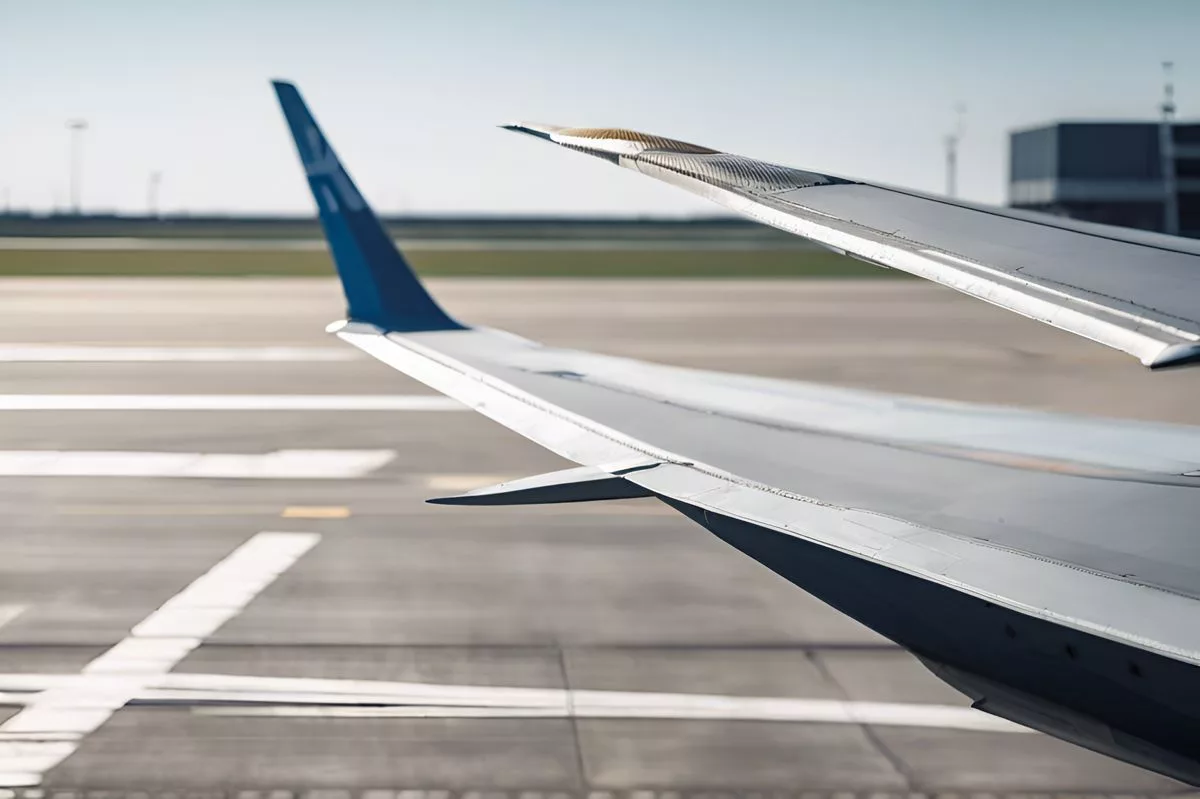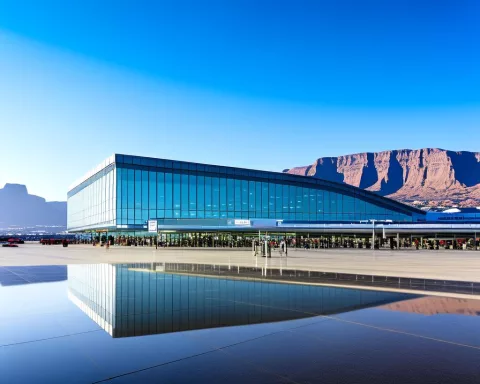South Africa is investing over R21 billion to upgrade its airports, including Johannesburg, Cape Town, and regional airports like Gqeberha’s Chief Dawid Stuurman International Airport, George Airport, Durban’s King Shaka International Airport, and East London’s King Phalo Airport. The plan aims to boost tourism, stimulate international trade, and position South Africa as a prominent figure in global aviation. These investments signify the nation’s ambitions to enhance its global status, stimulate economic growth, and establish itself as an influential player in global aviation, creating job opportunities and stimulating economic growth.
South Africa is investing R21.7 billion in upgrading several of its airports, including Johannesburg and Cape Town. The plan also includes refurbishing airports like Gqeberha’s Chief Dawid Stuurman International Airport, George Airport, Durban’s King Shaka International Airport, and East London’s King Phalo Airport. The improvements aim to enhance the functionality and efficiency of the airports, boost tourism, and stimulate international trade, positioning South Africa as a prominent figure in global aviation. These investments signify the nation’s ambitions to enhance its global status, stimulate economic growth, and establish itself as an influential player in global aviation.
The Crucial Role of Aviation in Economic Prosperity
In an era where the exchange of people and commodities is integral to the wealth of nations, airports hold an instrumental position. As a vibrant center for business and tourism, South Africa is channeling significant funds into refurbishing several of its airports under the guidance of Transport Minister Sindisiwe Chikunga. An ambitious R21.7 billion investment blueprint aims to reshape the nation’s aviation framework.
South Africa’s most active aviation centers, namely Johannesburg and Cape Town, are set to gain substantially from this comprehensive investment. However, the plan also includes other airports like Gqeberha’s Chief Dawid Stuurman International Airport, George Airport, Durban’s King Shaka International Airport, and East London’s King Phalo Airport, which are lined up for notable upgrades.
This ambitious project underscores the country’s dedication to enhancing its central airport hubs, along with its regional ones. In the chronicles of South Africa’s transportation narrative, this endeavor signifies a crucial turning point, marking a significant stride towards positioning South Africa as a prominent figure in global aviation.
Revitalization Plan: Upgrades and Expansions
At the core of the revitalization blueprint, Cape Town International and OR Tambo International airports are destined for multi-billion-rand expansions. A nearly R3 billion allocation for a vital runway realignment project is part of the overhaul due for the domestic terminal of Cape Town International. This scheme accentuates the commitment to improve the functionality and efficiency of the airport.
In contrast, OR Tambo International is set to undergo a substantial infrastructural transformation with the construction of a new R5 billion cargo terminal. This move supports the government’s ambition to stimulate trade by improving facilities for the quick and smooth movement of cargo.
Interestingly, these ambitious infrastructure schemes were not triggered by the pandemic. Instead, they were part of a strategic growth plan that was conceived before the global health crisis, with the objective of propelling South Africa onto the global aviation platform.
Enhancing Airport Facilities: A Strategic Approach
King Shaka International Airport in Durban, which had previously received nearly R420m in upgrades, is also in line for an exciting new feature—a hotel. Despite the grim reality of Covid-19 which led to the loss of scheduled services from international airlines such as British Airways, the commitment to advancing the airport facilities remains steadfast.
The introduction of a hotel within the airport grounds is a strategic decision aimed at boosting the airport’s allure and offering convenience for travelers. It signifies a progressive approach towards improving passenger experience and broadening the range of services provided.
Elevating Global Standing Through Investments
This monumental R21.7 billion investment in airport infrastructure bears witness to South Africa’s dedication to robust and world-class transportation. The upgrades promise not just improved airport facilities, but also set the stage for a flourishing tourism sector and vibrant international trade.
On a larger scale, these investments symbolize more than just physical structures of concrete and metal. They represent the nation’s ambitions to enhance its global status, stimulate economic growth, and lay the groundwork for a brighter and more prosperous future.
These improvements will cater not only to international travelers but also to the local population, as they are anticipated to create job opportunities and stimulate economic growth. As South Africa embarks on this ambitious voyage, it is clear that the nation is not merely upgrading its airports, but is also making a significant stride towards establishing itself as an influential player in global aviation.
1. What is South Africa investing in?
South Africa is investing over R21 billion to upgrade its airports, including Johannesburg, Cape Town, and regional airports like Gqeberha’s Chief Dawid Stuurman International Airport, George Airport, Durban’s King Shaka International Airport, and East London’s King Phalo Airport.
2. Why is South Africa investing in airport infrastructure?
The plan aims to boost tourism, stimulate international trade, and position South Africa as a prominent figure in global aviation. These investments signify the nation’s ambitions to enhance its global status, stimulate economic growth, and establish itself as an influential player in global aviation, creating job opportunities and stimulating economic growth.
3. Which airports are set to gain substantially from this comprehensive investment?
South Africa’s most active aviation centers, namely Johannesburg and Cape Town, are set to gain substantially from this comprehensive investment. However, the plan also includes other airports like Gqeberha’s Chief Dawid Stuurman International Airport, George Airport, Durban’s King Shaka International Airport, and East London’s King Phalo Airport, which are lined up for notable upgrades.
4. What does the revitalization plan include?
At the core of the revitalization blueprint, Cape Town International and OR Tambo International airports are destined for multi-billion-rand expansions. A nearly R3 billion allocation for a vital runway realignment project is part of the overhaul due for the domestic terminal of Cape Town International. This scheme accentuates the commitment to improve the functionality and efficiency of the airport. OR Tambo International is set to undergo a substantial infrastructural transformation with the construction of a new R5 billion cargo terminal.
5. What new feature is King Shaka International Airport in Durban in line for?
King Shaka International Airport in Durban, which had previously received nearly R420m in upgrades, is also in line for an exciting new feature—a hotel. The introduction of a hotel within the airport grounds is a strategic decision aimed at boosting the airport’s allure and offering convenience for travelers.
6. What are the larger ambitions of these investments?
These investments symbolize more than just physical structures of concrete and metal. They represent the nation’s ambitions to enhance its global status, stimulate economic growth, and lay the groundwork for a brighter and more prosperous future. These improvements will cater not only to international travelers but also to the local population, as they are anticipated to create job opportunities and stimulate economic growth.












